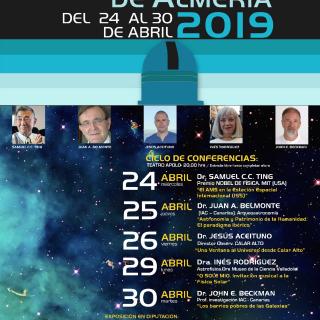Bibcode
Zaragoza-Cardiel, Javier; Fritz, Jacopo; Aretxaga, Itziar; Mayya, Divakara; Rosa-González, Daniel; Beckman, John E.; Bruzual, Gustavo; Charlot, Stephane; Lomelí-Núñez, Luis
Referencia bibliográfica
Monthly Notices of the Royal Astronomical Society: Letters, Volume 487, Issue 1, p.L61-L66
Fecha de publicación:
6
2019
Número de citas
10
Número de citas referidas
10
Descripción
Stellar feedback has a notable influence on the formation and evolution
of galaxies. However, direct observational evidence is scarce. We have
performed stellar population analysis using MUSE optical spectra of the
spiral galaxy NGC 628 and find that current maximum star formation in
spatially resolved regions is regulated according to the level of star
formation in the recent past. We propose a model based on the
self-regulator or `bathtub' models, but for spatially resolved regions
of the galaxy. We name it the `resolved self-regulator model' and show
that the predictions of this model are in agreement with the presented
observations. We observe star formation self-regulation and estimate the
mass-loading factor, η = 2.5 ± 0.5, consistent with values
predicted by galaxy formation models. The method described here will
help provide better constraints on those models.
Proyectos relacionados

Estudios Cinemáticos, Estructurales y de Composición, de los Medios Interestelares e Intergalácticos
El objetivo básico del proyecto es investigar la evolución de las galaxias mediante el entendimiento de la interacción del medio interestelar y las estrellas. La técnica principal que utilizamos es la cinemática bidimensional de galaxias enteras observada por nuestro instrumento GHaFaS, un interferometro Fabry Perot en el telescopio William
Prof.
John E. Beckman